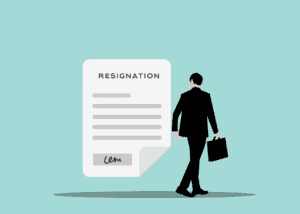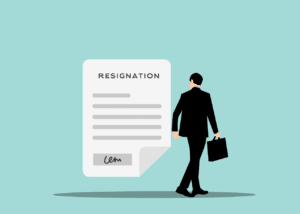Alcoholism is defined as an alcohol use disorder where an affected person is dependent on the consumption of alcohol. Alcohol affects the body by inhibiting coordination and judgement due to messages from the brain to the body being slowed. An alcoholic is dependent on alcohol both physically and psychologically. It is a disease which involves uncontrolled consumption of alcohol.
A worker who has consumed alcohol will have poor health and wellbeing and will have a reduced work output. They may experience poor memory, low concentration and poor physical health which will affect their work. If the worker operates machinery, they may also be negligent and cause accidents and injuries.
Alcoholism in the workplace can be costly for employers especially if it remains undiscovered and untreated. Employers and HR departments need to be aware of the signs of alcoholism and understand the actions required to support the employee and benefit the company. This is a sensitive subject and employers need to be careful to support the feelings of the affected employee and show they have a duty of care to all employees.
Identifying Alcoholism in the Workplace
Distinguishing between alcoholism and other mental health issues is important so that the correct actions can be taken. There are several signs to look out for:
A Change in Behaviour
This is one of the easiest things to notice in an employee who is an alcoholic. Colleagues often work closely together and are well placed to notice a change in personality or habits although often an affected employee may try to cover up their condition by being extra friendly. Colleagues may notice a slurring of speech or general confusion.
Memory is also affected by the consumption of alcohol. Colleagues may notice that an affected employee cannot remember instructions or discussions from earlier. The affected employee may not be able to follow an instruction correctly due to a memory lapse. They may forget to complete tasks or leave work incomplete and miss deadlines. This can have a great impact on the whole team’s performance.
A Decline in Work Performance
A failure to meet targets and deadlines can be an early indicator of alcoholism. Managers can see from performance trends that a worker is not reaching the expected work levels and is therefore failing to comply with their job description. As an alcoholic gets worse there will be measurable differences between the expected and actual work performance. They may fail to meet deadlines and make up excuses for not completing work. The quality of work may also be affected, and work may need to be redone by colleagues leading to further resentment.
An alcoholic employee may withdraw from others and prefer to work alone outside of their team. This will have even greater impact if they are a head of department or team leader as it will affect the performance of the whole team. The employee may neglect some of their duties and avoid work that is complex and difficult or involves collaborating with others.
Attendance
Absenteeism is likely to increase for an employee with an alcohol problem. They may call in sick more often or be unavailable for work. They may make excuses to disguise the actual reason for their absence. These unplanned absences can be an early indicator that an employee’s health is declining, and their problem is deteriorating.
Most employers require their employees to plan their holidays and absences to maintain the performance of their department. Whilst everyone at some time may have an emergency which prevents them from attending work, a pattern of lots of unplanned absences can indicate an alcohol problem. You may also notice that an employee disappears from work without an explanation or is often late or leaves work early. They may disappear in order to have a drink by hiding somewhere in the building. They are likely to cover their tracks to hide their alcohol consumption from colleagues.
Relationships at Work
Good working relationships between staff are essential to the good performance of any organisation. Teamwork is integral to increasing performance and companies spend a great deal of time and money to enhance these relationships, encourage respect and collaboration to increase performance.
A person suffering from alcoholism may have a personality change which greatly affects the relationship they have with colleagues. They may become more aggressive and hostile towards their colleagues and this will put a strain on work relationships as well as affecting whole teams. Customer relations may also be affected which will have a negative effect on a company’s reputation and ultimately will affect company profits.
Responding to Alcoholism at Work
All workplaces should have a policy that deals with alcoholism at work and managers and HR staff should be trained to deal with responding to this challenging situation. It is important to remember that alcoholism is a disease and the affected employee should be treated sensitively and with sympathy. There should be no judgement as the affected employee has a dependency on alcohol and has not chosen this path. A disciplinary approach will not solve the problem or support them to recover. Other employees will also want to see their colleague treated fairly and be supported.
The best approach will be supportive and encourage the employee to engage with recovery. Meetings should be positive and sympathetic to encourage the affected employee to be open about their issues. Employers should start by identifying specific issues and encouraging the employee to open up and discuss their problems. The employer can offer internal support by reducing workload or giving them time off.
Successful action requires the employer to also have knowledge of professional support that can help the affected employee to recover. Rehab Clinics Group has professionals who are specialists in alcohol support and can offer treatment programmes which suit individuals. They can offer services such as counselling to support the employee.
Full recovery will only occur if the employee is given the opportunity to attend a rehabilitation centre where medication, counselling and professional alcohol treatment can be given. By working with Rehab Clinics Group the employer can fully support the employee to have a successful outcome and prevent further losses and problems for the company.
by John Gillen – Director, Ocean Recovery Centre
References
Alcohol Rehab Centre – https://rehabclinicsgroup.com/alcohol/rehab/
Ocean Recovery Centre – https://oceanrecoverycentre.com/
Rehab 4 Addiction – https://rehab4addiction.co.uk/alcohol-rehab/

















































